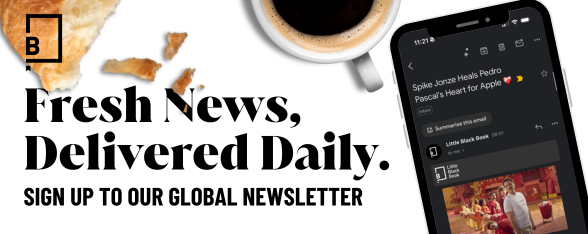
Brand Insight: Canal+

‘The Bear’, recently named the most awarded ad ever by The Gunn Report, is just one of a number spots from the Canal+ and BETC Paris powerhouse. Intrigued to know more about the 30-strong channel family’s marketing model, Laura Swinton spoke to the brand’s creative director, Olivier Schaack.
LBB> BETC Paris’ spot for Canal+, The Bear, was recently named the most awarded ever – why do you think it was so successful?
OS> It’s great because The Bear is a logical evolution of the previous spot – March Of The Emperor. I think The Bear works even better for non-French people because of the comedy of the voice and the accent; it is the ‘typical’, arrogant, French accent.
LBB> Next year, Canal+ will be 30 – how has it evolved, as a brand, over that time?
OS> Canal+’s business model is based on that of American channel HBO. While doing research for a presentation that I used to do on the history of Canal+’s design, promotion and ads, I came across some really great spots from HBO. Those HBO spots follow exactly the same routes as those of Canal+. Canal+ is such a great brand that you can have fun and play with.
LBB> Your talk at PromaxBDA Europe was titled ‘Something for Nothing’ – what themes and ideas did you put across in the session?
OS> ‘Something for Nothing’ was a category at the awards. We were looking for simple but effective on-air promotions that were executed for a small budget. This year we found that 95 per cent of the work done in promotion departments just involved editing, sound design and a beautiful voiceover – which is cheap. Because of this we decided not to just focus on ‘cheap ads’ as a category, but broaden it to include a number of categories – such as editing and sound design, user design and promotion, good idea using footage. Beautiful voiceovers are often overlooked but actually add an extra dimension to consumer communication.
I invited a creative director form BETC onto the jury – I really like the idea of having an advertising creative on the team. Also, for the first time, I think we have really felt the effects of budgets being cut. Projects have been very creative in idea, but the production hasn't quite been there to live up to it. Everywhere is experiencing tough times, but this is the first year that we have really noticed it at PromaxBDA. In that respect, hopefully things will soon change.
LBB> Regarding Canal+, I’m not entirely familiar with the model that you use – in the UK we have Channel 4 that has in-house creatives; the BBC works with advertising agencies but also has some creatives in-house. Obviously Canal+ works with BETC a lot, but do you have anything like that in-house?
OS> BETC is generally behind all communication that we’re involved in through all channels. However, in-house we produce almost all of the promotions for the 30 channels in the Canal+ family – except sometimes for bigger programmes or events, such as Dexter. We used to work with a lot of great creatives at Devilfish, an agency in Rome called Frame By Frame and companies in Spain. Sometimes when we have international brands, we hold a pitch between different agencies and our internal creatives, and the best idea is produced. This is great for us because it really puts our creatives to the test.
LBB> Today, people watch TV quite differently, with social media and multi-screening being growing influences. How do you encorporate these changes into your promos?
OS> France is a very complicated country when it comes to TV – there are so many constraints. The CSA [Conseil Supérieur de l'Audiovisuel] which controls the regulation of all electronic media in France, doesn’t allow a number of things, including the use of Twitter hashtags on adverts. Some channels try, but before you can do anything you have to go through the legal department. It’s a shame because I think things like hashtags are really important because they compliment what’s happening on channels.
LBB> Plus real-time social media responses can be a useful as research too…
OS> Yeah, when Homeland was to be broadcast on Canal+, we promoted it just tweets. We put the first episodes online and people were asked to give their impressions after watching it. We then promoted the series using the comments from people on Twitter. That was interesting and complicated, but it worked.
LBB> Within France, what sort of relationship do people have with the Canal+ brand?
OS> Canal+ revolutionised French television when it was launched. I people who were watching TV at that time formed a real attachment with it – it quickly became like a club. People in this ‘club’ expected many things and we just tried to never disappoint them, which was hard but we managed it.
LBB> Over the next year, are there any big events or projects coming up that you can talk about?
OS> We recently acquired Formula 1 for the first time, which is already being broadcast. This is great for us because we currently transmit the two best games of the French League, the best game of the Champions League, the British Premier League, and we now have the Formula 1. Sport is so important to many viewers and broadcasters because it is one of the only types of programmes which can be fully exclusive.















